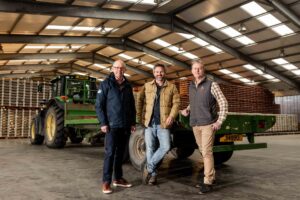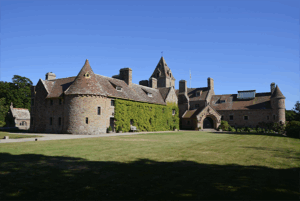
By Gavin Ashenden
It was Ronald Reagan who summed it up best when he said that the top most terrifying words in the English language were ‘I’m from the government and I’m here to help.’
One of the most striking changes in our experience is the way in which the government and the state had become more ambitious to help us. Inevitably any help comes at the price of transferring degree of freedom and personal initiative from the home or the person to the state.
Perhaps the most terrifying example of this was during the lockdown crisis following the outbreak of coded.
I don’t think I could ever have persuaded myself that the government would take upon itself the power to close down society in the way that it did and remove almost all personal autonomy from its citizens.
It told us it was doing this for our own good. It told us that we were following the science. It told us that if he didn’t do that that would be unimaginably large numbers of deaths in our society and it told us that if we did not comply, we would be punished. And not only punished by the state but also excommunicated socially from the good regard of our communities.
Only one state in the Western world refused to act in this way and it was Sweden. All eyes watched Sweden to see whether or not the actions of the government in leaving it to citizens to self-isolate and use their own common sense to distance, would result in a catastrophic mortality rate or something else.
Whilst all this was going on the media worked alongside the government to disallow any conversations about the wisdom or efficacy this strategy. We were not just in a lockdown physically, we were locked down emotionally and intellectually.
For reasons that I could not justify but felt intuitively very strongly., I suspected the Swedish government might be right.
Last week a report was finally published, receiving almost no recognition in the newspapers or anywhere else that counted the figures. Sweden had a lower mortality rate than anybody else after not locking down its citizens than any other country.
I wanted to walk up and down the street outside my house shouting ‘I told you so’. I wanted to write ‘I told you so’ all over Twitter, Facebook and YouTube. But I realise there is no point. However, I’m still left with a sense of horror at the ambitions of the state and the realisation that all my reservations about human nature and its lust for power, particularly in politicians and state employees were correct. People with power are not to be trusted. As the Hancock WhatsApp texts show only too unpleasantly, power goes to the head and rots the moral conscience. Otherwise ineffective and ineffectual men and women become tyrants. Power is intoxicating. Power is a drug. For some certainly, the most addictive and dreadful of drugs.
It is essential that we, the people, help to save politicians from themselves. If Covid lock downs have taught us anything, it should have taught us to protest and say ‘no’ to the politicians and their administrators when they practice over-reach.
One of the more subtle but threatening murmurings of the state has been to interest itself in our relationship with fire.
And there is something viscerally important about our relationship with fire. It’s not just pragmatic and useful. It’s in our genes and our collective DNA in so far as any memory passes down the generations as an instinct.
Perhaps one of the most vital and personal ways of guarding our independence, and allowing ourselves to warm our houses and cook our food is the gift of fire.
For very many people heating and eating are accomplished using utility companies and the infrastructure the state provides, gas or electricity. And for most of the time this is a very efficient and welcome resource. But it is still the case that sometimes we experience power cuts or, particularly after the Ukraine war, supply issues.
Very many people want to conduct their affairs by having some kind of backup which allows them to take individual responsibility when the state fails or refuses to provide. At the moment our very last resort is fire. And we use fire at home in either open fireplaces or, more increasingly, in wood burners.
If you have a wood burner in the house you can keep yourself warm and even cook, if at any stage the infrastructure of the state let you down.
When it began to be published that the government was starting have ambitions on how we used, or whether we had, or whether we were allowed wood burners, it rang serious and sharp alarm bells.
Their excuse was our ecology. The nonsense of this is not whatever you think about global weather changes, nothing that is ever done in Britain will have anything beyond the most minimal effect. Our output comprises at most 2% of the world’s pollution. Everything that matters is being done in India and China.
This doesn’t mean that the ecologically minded shouldn’t exercise their consciences in the way that they pursue their lifestyles. But it does mean that the state has no justification for overreach. It does mean that there ought to be some calculation between what is needed as a matter of ecological integrity and responsibility, and what is needed to allow the citizen a degree of autonomy and decision making that the state has no right to remove.
The difficulty is compounded by a suspicion that the state, or the civil servants and politicians who run, it have no sense of the integrity that is required in the relationship between us and them. We need keep and guard a balance between the state and the citizen, if democracy and bureaucratic accountability are to be kept in a virtuous balance.
Whatever the outcome of this latest initiative, the fact that it is about fire, and our relationship with how we warm and cook for ourselves beyond the reach of the state, gives this latest potential overreach a practical and a symbolic significance that we need to take very seriously.
Dr Gavin Ashenden is a Catholic layman, author and commentator, and associate editor of The Catholic Herald. Formerly a priest of the Church of England, and subsequently a continuing Anglican bishop, from 2012 to 2016 he was the vicar of St Martin de Gouray in Gorey. He was appointed Chaplain to the Queen from 2008 until his resignation in 2017





One Response
I wholeheartedly agree with every word Dr Gavin Ashenden has said in the above piece. A creeping insidiousness…